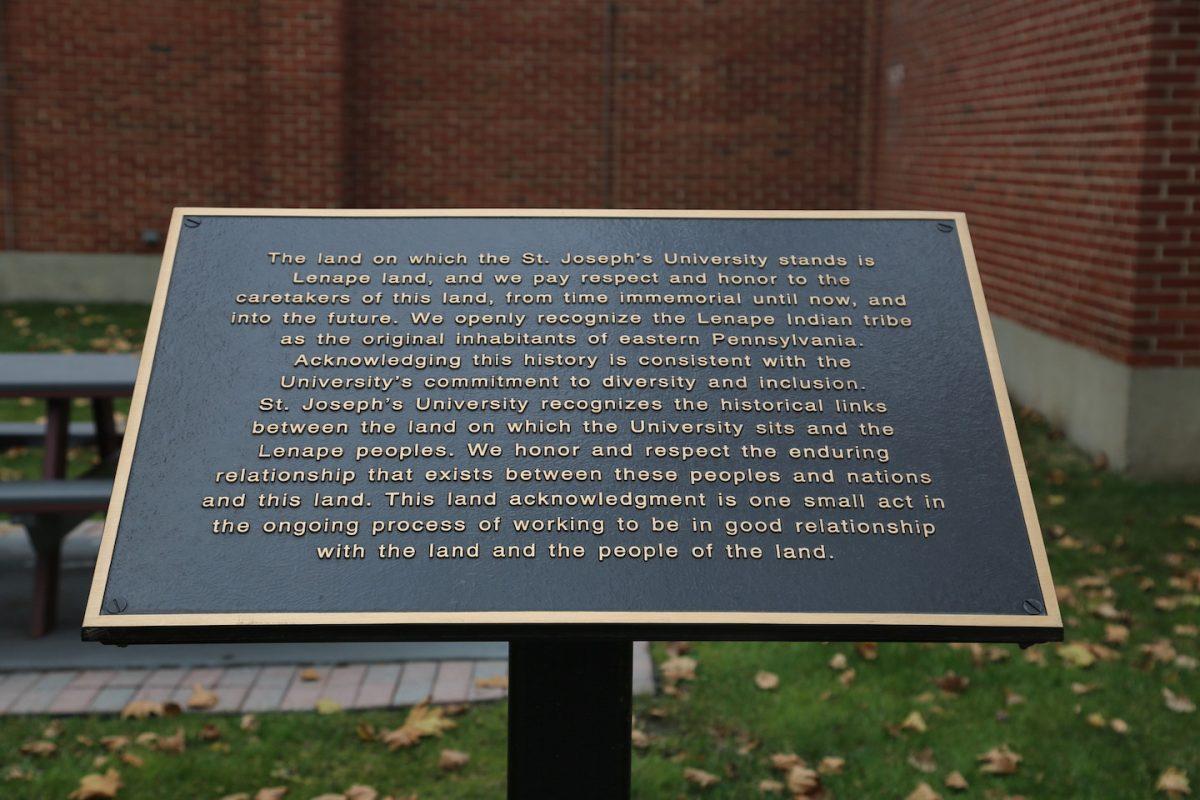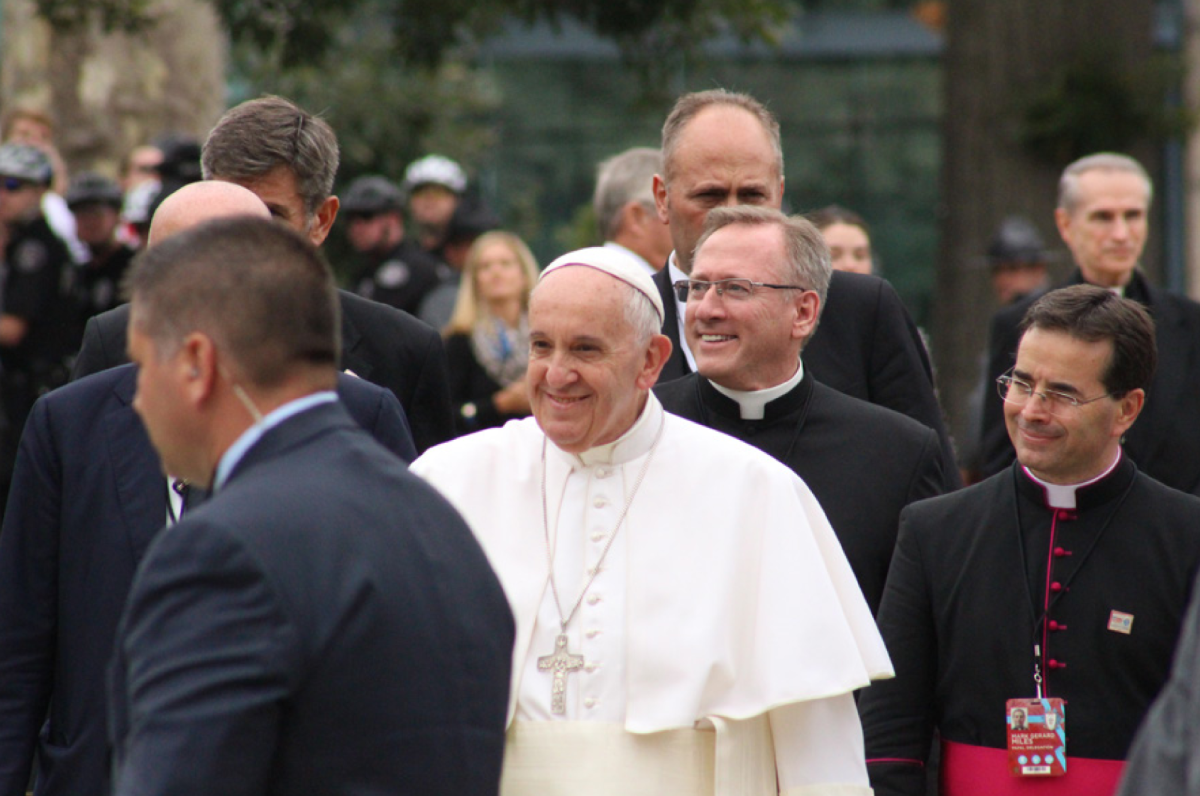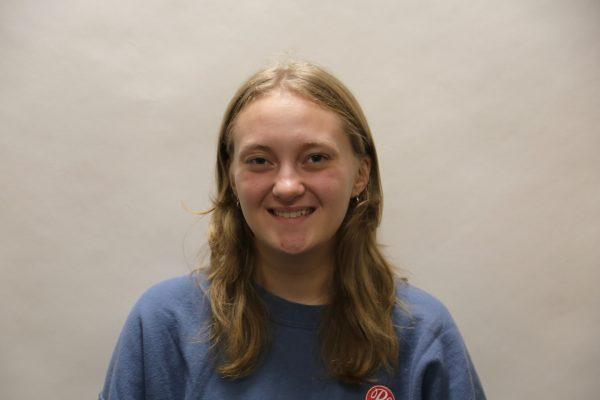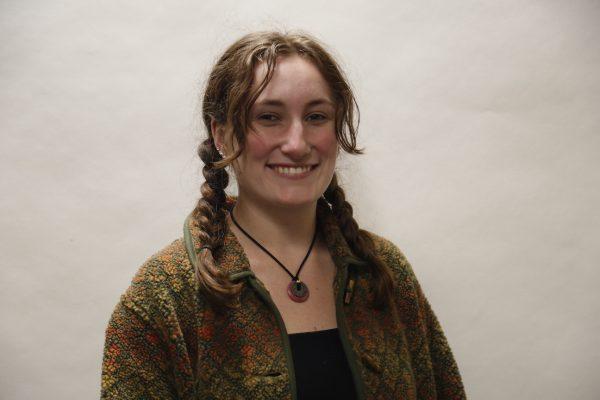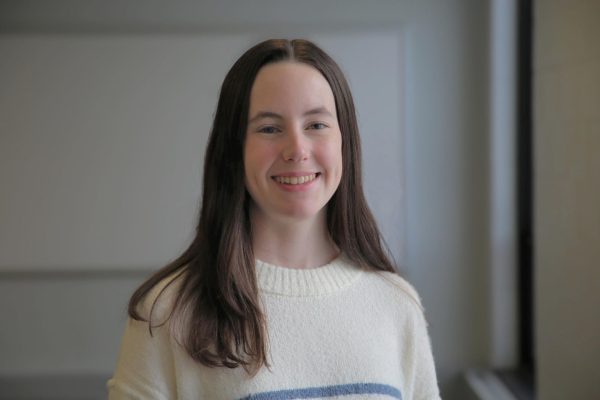While St. Joe’s has yet to publish an official land acknowledgment statement recognizing the Lenape land the university is built upon, a plaque on the University City campus does just that.
The Lenape, whose name means “original people,” are an Indigenous people of the Northeastern Woodlands, which originates from the Atlantic coast to the Great Lakes, and from the mid-Atlantic United States into subarctic regions of Canada.
The plaque, which is located near Alumni Hall, reads, in part: “The land on which the St. Joseph’s University stands is Lenape land, and we pay respect and honor to the caretakers of this land, from time immemorial until now, and into the future…Acknowledging this history is consistent with the University’s commitment to diversity and inclusion. St. Joseph’s University recognizes the historical links between the land on which the University sits and the Lenape peoples.”
In 2022, shortly before the merger between USciences and St. Joe’s, the USciences DEI Council wrote a land acknowledgment statement for the land on which USciences, now St. Joe’s UCity campus, sits. The statement then went to the USciences Cabinet, made up of executive leadership that included the president, vice president and faculty senate president, which approved the statement, according to Erika Lohbauer, programming specialist for STEM in diversity initiatives.
Lohbauer was a member of the council that approved the statement.
“It did go through the DEI Council, which does have faculty representation, but isn’t necessarily a faculty-driven process,” Lohbauer said.
The final part of the approved statement reads: “We acknowledge the Lenni-Lenape as the original people of this land and their continuing relationship with their territory. In our acknowledgment of the continued presence of Lenape people in their homeland, we affirm the aspiration of the great Lenape Chief Tamanend, that there be harmony between the indigenous people of this land and the descendants of the immigrants to this land, ‘as long as the rivers and creeks flow, and the sun, moon, and stars shine.’”
That statement, though, is different from what appears on the plaque on the UCity campus.
When asked who wrote the statement on the current plaque and when the plaque was installed, Kevin Gfeller ’20, assistant director of public relations, wrote in a written response to The Hawk that the land acknowledgment occurred before the merger with St. Joe’s.
“The land acknowledgment in University City pre-dates the merger and the installation of the plaque happened outside of SJU’s campus signage protocol,” Gfeller said.
When asked again to clarify who wrote the text, which refers to “St. Joseph’s University” rather than USciences, and when the plaque was installed, Gfeller did not respond by press time.
The Office of Facilities also did not respond by press time to questions about whether their staff installed the plaque and when.
On the Hawk Hill campus, an Indigenous Cultures and Communities Working Group, which is made up of students, faculty, and staff, has been working for two years on a land acknowledgment statement that was presented as a resolution and passed by the University Faculty Senate in May.
William Wolff, Ph.D., associate professor of communication studies, is one of the faculty leaders of the Indigenous Cultures and Communities Working Group. Wolff confirmed in a written response to The Hawk that the Indigenous Cultures and Communities Working Group was aware of the existence of a plaque on the UCity campus prior to the merger with St. Joe’s, but they were not aware of a plaque that mentions “St. Joseph’s University” until informed by The Hawk.
“The Indigenous Cultures Working Group was not in any way involved in the creation of the plaque, and the language in the plaque is not informed by our faculty-approved Land Acknowledgement,” Wolff wrote in response to written questions from The Hawk.
In 2022, Wolff and several other faculty members hosted a Day of Dialogue session on the topic of land acknowledgement titled “Toward an Indigenous Land Acknowledgement at SJU.” In 2023, they hosted another Day of Dialogue session, “Uplifting Indigenous Peoples, Lands, and Cultures.”
Interested attendees formed a group to create a land acknowledgment statement following the Day of Dialogue in 2022, Gfeller said.
That statement reads, in part, “With our acknowledgement, the Saint Joseph’s University community dedicates itself to building meaningful relationships with Lenape and other Indigenous communities to inform advancing teaching materials, scholarship, arts, academic programs, sustainability practices, and community engagement that honor and uplift Indigenous knowledge and practices.”
After the Faculty Senate endorsed the statement, it went on to the University Council, but the Working Group was informed additional steps must be taken, Gfeller said.
“[The Indigenous Cultures and Communities Working Group] was encouraged to submit a mandate to initiate the formal governance review process – one that includes key faculty, staff and student perspectives,” Gfeller said.
Wolff said the Senate is deliberating whether a mandate is necessary for the statement.
“The president of the Senate is working with the university administration to determine if a mandate is required,” Wolff said. “We will move forward based on the result of those talks.”
Wolff said this acknowledgment is long overdue from the university.
“St. Joe’s is woefully behind on building community relationships with the Indigenous communities in the area,” Wolff said. “Penn, Temple, Arcadia, all the major local universities have already started this process years and years ago.”
Chris Heasley, associate professor and chair of educational leadership and counseling and a member of the Working Group, emphasized how essential it is for St. Joe’s to acknowledge the Indigenous land it occupies as the original owners deserve the recognition, especially in the context of how it was taken.
“I think it’s important to acknowledge our truth,” Heasley said. “When we consider how the land in which Philadelphia sits and the land in which St. Joseph’s sits, [it] didn’t belong to us, and I pay honor and tribute to the people for whom it did belong and who in many circumstances, it was taken away from without righteous process or without acknowledgment and consent.”
Carlos Moreno, clinical assistant professor of occupational therapy, who approaches occupational therapy through a practice known as “occupational justice,” said a land acknowledgment is very important, but is just a first step.
“That baby, first step, is very important to take in the right way, not just as a, ‘we’ve done an acknowledgment, we move on,’ but the acknowledgement starts the conversation,” Moreno said.
For many, this acknowledgment is a long time coming. Ruby Dillard ’24, who is Native American from the Sisseton Wahpeton Oyate tribe, said she does not understand why it is taking so long for St. Joe’s to take the initiative on this issue.
“Other schools have done this, and I just don’t get what’s stopping [St. Joe’s],” Dillard said. “It just seems like a complete lack of awareness.”
Dillard said there must be more urgency in creating land acknowledgments across all universities.
“Every institution has problems; this is one of those problems. But it’s one that can be very easily fixed, so just fix it,” Dillard said. “There’s really no downside for SJU to add a land acknowledgment statement.”






































